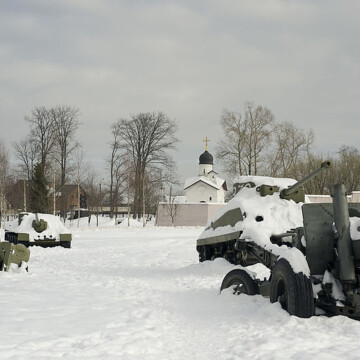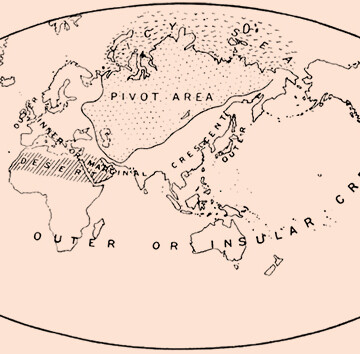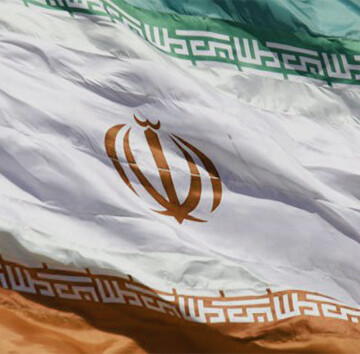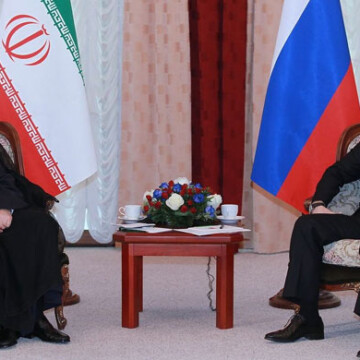Having turned 60 last month I should start taking stock of my life, making the reasonable assumption that the best is behind me (infantile baby-boomer assertion that “sixty is the new forty” notwithstanding). Yes, I am doing that, but such musings are not to be shared. A byproduct, which may be of some interest to...
Author: Srdja Trifkovic (Srdja Trifkovic)
Trouble in Rome
“Many of us non-RC traditionalist all over the world had awaited the news from Rome with some trepidation,” I wrote here on March 7 of last year. “In the end it turned out to be rather good. Pope Francis’… election is a compromise which will keep most traditionalists contented, if not exactly enthused, while giving...
Confronting the Islamic State
The horrendous murder of James Foley by the Islamic State (IS) is more than just another display of jihadist savagery, reminiscent of the death of Daniel Pearl in 2002. Its strategic purpose is to provoke a wave of indignation at home, and to get the United States directly involved in yet another unwinnable Middle Eastern...
The Islamic State Consolidated
A week ago American planes were used for the first time to bomb Islamic State (IS) targets in northern Iraq. President Obama’s decision to authorize limited airstrikes has not changed the military balance, however. The IS army of some ten thousand fighters is an easily dispersible, highly trained light infantry force. There are no valuable...
Israel: Tactical Winner, Strategic Loser
The events in Gaza since July 7 have shown, not for the first time, Israel’s difficulty in coping with the challenges of asymmetric warfare. The problem first became apparent in Lebanon exactly eight years ago (July-August 2006), when Hezbollah – the weaker party by several orders of magnitude – was able to exploit Israeli political...
Russia and the West: The Tragedy of 1204 Redux
In April 2008 I published this article on our website (the link is no longer available). In view of the crisis in and over Ukraine and the ongoing overall deterioration of relations between “the West” and Russia, its key points are even more pertinent today – over six years later – than they were then....
A Joint Criminal Conspiracy
The Great War started 100 years ago this August. The most tragic event in human history, that war destroyed a vibrant, magnificently creative civilization. A prosperous and well-ordered world was shattered forever. New killing machines that only a generation earlier did not exist were deployed on a massive scale: airplanes, tanks, poison gases, submarines. The...
MH17: The Interim Score
In the end we may never know with certainty who shot down the Malaysian airliner on July 17, and under what circumstances. My assessment, made in the immediate aftermath of the disaster – that it was engineered by deliberately guiding the airliner into harm’s way – will be further examined in this article. Patrick Buchanan’s...
A False Flag, or Fog of War over Ukraine?
A Malaysian Airlines Boeing 777 bound for Kuala Lumpur from Amsterdam was shot down in eastern Ukraine Thursday afternoon, killing all 298 passengers and crew. It was hit as it cruised at 33,000 feet above the war-ravaged Donetsk Oblast, 35 miles west from the Russian border. The airliner’s demise has the potential to escalate the...
Does Putin Have a Strategy? (III)
According to the latest opinion poll, published on July 16, President Putin’s approval rating among different segments of Russia’s electorate has risen to an unprecedented 66 percent. This may change quickly, however, if he comes to be perceived as weak and indecisive in handling the next stage of the Ukrainian crisis – the one that...
Does Putin Have a Strategy? (II)
It’s been over two months since I first asked this question in the aftermath of the Odessa massacre. The situation has further deteriorated since that time. The Kiev forces, spearheaded by the Right Sector-dominated “National Guard,” have turned much of Slavyansk into rubble. As a massive wave of refugees from eastern Ukraine enters Russia, their...
A Big Deal
“This is the biggest contract in the history of the gas sector of the former USSR,” Vladimir Putin said after the $400 billion agreement to supply Russian natural gas to China was signed in Shanghai on May 21. It is much more than that, Putin went on: It is an “epochal event.” China’s President Xi...
The ISIS Caliphate: A Viable Project
Large-scale fighting raged in Iraq on Monday, following Sunday’s proclamation of an Islamic caliphate over large areas of Syria and Iraq by the Islamic State in Iraq and Syria (ISIS). The jihadist group declared its leader Abu Bakr al-Baghdadi as leader of the new entity and its caliph, theoretically combining religious and state authority in...
The Geopolitics of New Multipolarity
Excerpts from a lecture delivered at the IDC in Paris on May 27, 2014. For the French translation click HERE. For Russian, click HERE. During the Cold War, holding on to the continental rimland – from Norway, across central Europe, to Greece and Turkey – was the mainstay of America’s strategy and the rationale behind...
IRAQ: THE SCORE
In an essential article published on June 16, one of the key architects of the Iraq war, former ambassador John Bolton, argued that “US focus must be on Iran as Iraq falls apart.” He is unapologetic about the war itself, saying that “inevitably, analysts are rearguing George W. Bush’s decision to overthrow Saddam Hussein, Barack...
The Ever More Complex Levantine Puzzle
“Both Mr. Assad and the jihadists represent a challenge to the United States’ core interests,” former U.S. Ambassador in Damascus Robert S. Ford wrote in The New York Times on June 10. He advocated a strategy that would supposedly deal with both Bashar al-Assad and the jihadists: “with partner countries from the Friends of Syria...
Chaos in Iraq
Last Tuesday’s sudden capture of Mosul, Iraq’s second-largest city (population 1.8 million), by a coalition of Sunni forces led by the Islamic State of Iraq and the Levant was swiftly followed by the fall of Tikrit, Saddam Hussein’s home town. By Thursday morning the insurgents were reported to have advanced to the city of Samarra,...
Obama’s West Point Address
President Barack Obama’s commencement address at West Point on May 28 managed to displease pretty much everyone in the nation’s commentariat. Before making an overall assessment of its significance, it is necessary to examine the validity and implications of Obama’s individual statements. “[B]y most measures America has rarely been stronger relative to the rest of...
The Folly of Overreach
To a casual observer it might seem that President Barack Obama’s four-nation tour of East Asia, which took him to Japan, South Korea, Malaysia, and the Philippines, came at a time of America’s undisputed global predominance. The visit strengthened existing U.S. military commitments to the region, created some new ones, irritated China, and emboldened American...
The Chronicler of Serbia’s Decline
Serbia’s foremost writer Dobrica Cosic (Dobritsa Chossich) died in his sleep on May 18 at the age of 93. He was a complex man with an interesting life. A Partisan commissar during World War II and a Communist Party senior oficial and approved writer until the early 60’s, by the end of that decade he...
MODI ANTE PORTAS
Two important recent events – Narendra Modi’s landslide victory in India last week and the massive energy and trade agreement which Russia and China signed in Beijing on Wednesday – have the potential to alter Asia’s strategic landscape. Modi is an assertive politician unafraid to take risks, a market-oriented reformer, but also a Hindu nationalist....
Ukraine: Does Putin Have a Strategy?
The events in Odessa and the Donetsk region over the past three days mark a new stage in the Ukrainian drama. The authorities in Kiev are ready to use indiscriminate force, their Western mentors are supporting them while continuing to blame Russia for the rampant violence, the insurgents in the east appear to be on...
Moscow Rules
Spending the first three days of spring in snowy Moscow, especially after being in balmy Yalta and Sevastopol, is not my idea of fun. It is useful, however, when you write on foreign affairs and there’s a first-rate crisis under way between “Putin’s Russia” and the West. The overriding impression is that Moscow no longer...
The Shaky Ukrainian Accord
At a hastily convened meeting in Geneva last Thursday the foreign ministers of Russia, the Kiev interim regime, the European Union and the United States worked out an agreement on the principles that are supposed to defuse the crisis. It is a flawed document, open to conflicting interpretations and devoid of verifiable benchmarks. The agreement...
Report from Moscow
I am back from Russia’s capital, where I presented a paper at a conference on World War I at Moscow’s Lomonosov State University. Regarding Ukraine, the consensus of my numerous interlocutors of various persuasions and backgrounds is clear: 1. Russia will not invade. She will support demands for federalization in the east (Kharkov), southeast (the...
A Crimean Travelogue, Part II
Sunday, March 16 – the referendum day – started with a morning visit to three polling stations. By 10 a.m. mainly the elderly turned out to vote in large numbers, some of them very frail and most visibly poor. While those approached outside insist that their vote to join Russia is not affected by material...
Eastern Approaches
In April 1904, Scottish geographer Halford Mackinder gave a lecture at the Royal Geographical Society. His paper, “The Geographical Pivot of History,” caused a sensation and marked the birth of geopolitics as an autonomous discipline. According to Mackinder, control over the Eurasian “World-Island” is the key to global hegemony. At its core is the “pivot...
A Crimean Travelogue, Part I
Friday, March 14 – The afternoon Aeroflot flight from Belgrade to Moscow takes a surprising route: due north over Hungary, Slovakia and eastern Poland, then turning east-northeast over Belarus, and into the Russian air space just east of Smolensk. In more normal times the flight path would have taken us across Romania, Moldova and Ukraine,...
Srdja Trifkovic on Al Jazeera
Srdja Trifkovic discusses the Crimean referendum om Al Jazeera’s Inside Story. He appears at the 9:55 and 20:08 mark in the video. Add to Favorites
Everything You Wanted to Know About Putin and Crimea but were Afraid to Ask
Srdja Trifkovic interviewed by Mike Church on SiriusXM Patrot Radio: Mike: I have been enjoying your writing for years at Chronicles, including your ruminations about our modern demonization of monarchy and how you’re trying to figure out: How did this greatest and oldest form of government get to the station in life where it’s regarded as...
Crimea and Kosovo: Commonalities and Differences
Crimea and Kosovo have much in common: an autonomous status, military bases of other countries on their territories, and a longing for independence among the majority of the population. Crimea’s ethnic composition and Western policy towards Ukraine could create a Kosovo-like scenario. The Voice of Russia talked to Serge Trifkovic, writer on international affairs and...
Ukraine Bosnified, Putin Hitlerized
On March 6 President Obama said in Washington that the Crimean authorities’ plans for a referendum “violate the Ukrainian Constitution and violate international law.” “Any discussion about the future of Ukraine must include the legitimate government of Ukraine. We are well beyond the days when borders can be redrawn over the heads of democratically elected...
An Optional Crisis for the U.S., an Existential Threat for Russia
In his latest RTTV interview our Foreign Affairs Editor discusses the developments in the Crimean Peninsula and elsewhere in Ukraine. Srdja Trifkovic: Ukraine is getting closer to disintegration, or at least a form of federalization to which the Russians can make a stabilizing contribution. Any attempt by the mobocracy that has gained power in Kiev...
In Praise of Geopolitics
The noun geopolitics and the adjective geopolitical are increasingly present in media discourse on world affairs. In principle, this is a good thing. Relating political power to the immutable imperatives of space and resources is essential to an analysis of world affairs that is free from the ideological baggage of American exceptionalism, whether Wilsonian or...
Ukraine’s Uncertain Future
To understand the ongoing crisis in Ukraine it is necessary to take a look at two maps: the distribution of votes between Viktor Yanukovych (blue) and Yulia Tymoshenko (yellow) in the presidential election of January 2010, and the linguistic divide between the mostly Ukrainian-speaking western and central regions (red, pink) and the predominantly Russian-speaking...
Ukrainian Protests Degenerate from Hooliganism to Terrorism
RT: In Ukraine there have been accusations of the use of live ammunition by both sides in the conflict. Protesters are well armed but it is unclear just where they’ve sourced their firearms from. They were also using grenades, fireworks and Molotov cocktails against law enforcers. Others threw rocks, wielded baseball bats and metal rods....
Letter from Bosnia: A Fraudulent “Spring”
There is more than meets the eye to the wave of ostensibly “non-ethnic” anti-corruption demonstrations in several majority-Muslim cities of Bosnia-Herzegovina, which started on February 6 and largely fizzled out a week later. The Nulandesque agenda became obvious within days, as protest leaders and various NGO activists, journalists and politicians all over “the international community”...
Nuland’s Doctrine of Limited Sovereignty
RTTV live interview with Srdja Trifkovic RT: We’ll now bring in Srdja Trifkovic, who is a writer on international affairs and Foreign Affairs Editor for the magazine Chronicles. Thank you very much, Mr. Trifkovic, for joining us at RT International to discuss the situation in Ukraine. As we know, Victoria Nuland plans to meet both the...
Syria: A Predictable Failure
U.N. mediator Lakhdar Brahimi wrapped up the first round of the “Geneva II” negotiations last Friday reporting little progress. No ceasefire was agreed, and talks on a transitional government never began. The next round is scheduled for February 10, but its prospects are dim. The opposing sides predictably blame each other for the stalemate, but in any...
A Vanishing Nation
Uit die blou van onse hemel uit die diepte van ons see, Oor ons ewige gebergtes, waar die kranse antwoord gee. When in 1918 Cornelis Jacobus Langenhoven wrote “Die Stem” (“The Voice”), the poem that became South Africa’s pre-1995 national anthem, by “our everlasting mountains” he meant the Drakensberg range that separates Transvaal from Natal. ...
Dr. Trifkovic on RT
Click here to watch Dr. Srdja Trifkovic’s interview on RT discussing the Eurovision song contest. Add to Favorites
Global Security Challenges in 2014
The year ahead is likely to bring unforeseen foreign-policy challenges. Two years ago nobody anticipated the “Arab Spring,” and that phenomenon’s causes, significance, and future developments are still a matter of dispute. The North Korean regime is fundamentally less stable than at any time since the 1950-53 war, and its sudden unraveling could cause a...
An Uncertain Asian Pivot
Nicholas Spykman died 70 years ago, more than two years before Japan’s defeat, but his analysis of America’s role in the world, and the challenges she will face in the Far East, sounds almost prophetic today. The Dutch-born Yale professor caused a scandal when he wrote in 1942—only months after Pearl Harbor—that America’s chief regional...
A Decent Deal
Iran’s nuclear talks with the P5+1 (five permanent members of the UN Security Council and Germany) in Geneva resulted in an “interim” agreement last Saturday. It obliges Iran to verify the peaceful nature of its nuclear program, and to dilute its stockpile of highly enriched uranium under international supervision, in return for limited sanctions relief....
Armistice Day, 95 Years Later
After four years and three months of unprecedented carnage, the Great War ended 95 years ago today. The most tragic event in the history of mankind, that war destroyed a vibrant, magnificently creative civilization. A fundamentally decent and well-ordered world was shattered for ever. The floodgates of hell in which we live now were opened....
Latest Massacre of Syrian Christians Covered Up in the West
When a false-flag atrocity occurs of which Muslims are the purported victims, the United States goes to war to save them—the January 1999 stage-managed “massacre” at Racak, in Kosovo, being a classic example. When all-too-real massacres of Christians by Muslims take place, they are unreported in the Western media and uncommented upon by Western politicians....
Jean Raspail’s New Warning
Forty years after publishing his prophetic dystopia Jean Raspail is still with us, ever more resigned that our civilization is on the “road to disappearance.” As he explained in an interview published in Valeurs Actuelles on October 25 (transl. by ST), he has no desire to join the big circle of intellectuals who spend their time debating immigration...
The Middle East: Steady as She Goes
To paraphrase Camus, he who despairs of the condition of the Middle East is a coward, but he who has hope for it is a fool. In a permanent disaster zone, the best one can hope for is that things will not get worse—not too soon, anyway. Things did get better in the Middle East...
Egypt Stabilized
The arrest on October 30 of Essam el-Erian, a member of the Muslim Brotherhood’s once-powerful Guidance Council and deputy leader of the MB-controlled Freedom and Justice Party, demonstrates the extent to which the interim government of Egypt has been able to cement its control over the country since former president Mohammed Morsi was ousted almost four...
Syria’s Violent Stalemate
The international crisis may be over, but the multisided war in Syria is continuing. On Friday government planes bombarded rebel positions in the eastern city of Deir al-Zor after heavy clashes claimed the life of one of President Bashar al-Assad’s top military intelligence officers. In the long-contested city of Aleppo, a renewed rebel assault on the city’s...



